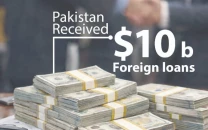Consequences of the NFC Award
The 7th NFC Award which became operative this year has fundamentally altered the public finance landscape.

Consequences of the NFC Award
The consequence is that the process of fiscal decentralisation will now go much further in Pakistan. The share of provincial governments in public expenditures will rise from 30 per cent to almost 36 per cent. While this is still lower than India (45 per cent) and China (54 per cent), it is much higher than observed in Indonesia (10 per cent), Malaysia (19 per cent) and the Philippines (9 per cent). In fact, the provinces will undertake the major part, 53 per cent, of the development programme for the first time.
How will the larger transfers affect federal finances? Virtually the entire increase in revenues will be pre-empted by the higher transfers, leaving net revenue receipts slightly below last year’s level. Consequently, a very tight lid will have to be exercised on expenditure. The result is that the size of the federal budget will remain unchanged at last year’s level of Rs2,315 billion. In the presence of high inflation, rising security costs and a 50 per cent salary hike, the savings are pinned on a drastic reduction in subsidies. So, can this be achieved? The danger is that the federal deficit in 2010-11 could exceed the target level of 5 five per cent of GDP.
The expectation by the federal government is that the provinces will generate a large revenue surplus of Rs342 billion and by limiting their development expenditure eventually build up cash balances of Rs167 billion. The provincial budgets, in fact, reveal that a combined revenue surplus of Rs364 billion is planned, despite the need to cover the cost of over Rs100 billion of the additional salary bill. Therefore, the larger transfers have not introduced any visible profligacy in current expenditure by the provincial governments.
Instead, the provinces appear to be more ambitious on the development side. They are targeting for a combined development programme of Rs443 billion, an increase of over 50 per cent, substantially more than envisaged by the National Economic Council of Rs373 billion. This implies no significant build up of cash balances. Consequently, the consolidated fiscal deficit is likely to be substantially higher than the target four per cent of the GDP.
If there is any evidence of potential lack of planning and waste, it is in the proposed Public Sector Development Programmes (PSDP) of the provinces. For example, the Sindh government proposes a six-fold jump in the development allocations from Rs10 to Rs60 million to each MPA. The Balochistan government has allocated a lump sum amount equivalent to over 50 per cent of the PSDP for unidentified new projects. The Punjab government has enhanced the allocation for special programmes/packages, including exotic urban development projects in metropolitan cities. The Khyber-Pakhtunkhwa government proposes big increases in allocations for regional development, without a statement of specific plans.
In addition, despite the pressure to raise the tax-to-GDP ratio, the access to larger transfers is leading to a visible slackening of the provincial fiscal effort to below 0.4 per cent of the GDP. Promising sources of revenue like the agricultural income tax and property related taxes remain underdeveloped.
Altogether, while the NFC Award has heralded a new era of fiscal federalism in the country, it will exacerbate the problem of a growing fiscal deficit and the resulting macroeconomic imbalances.
Published in The Express Tribune, August 16th, 2010.














COMMENTS
Comments are moderated and generally will be posted if they are on-topic and not abusive.
For more information, please see our Comments FAQ